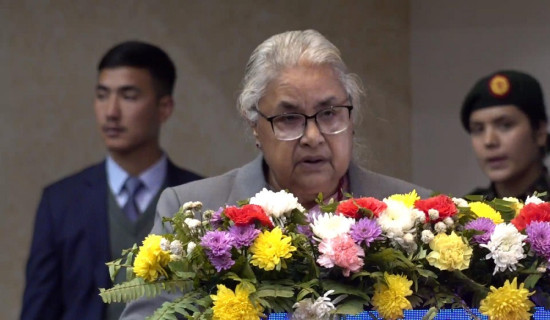- Thursday, 12 February 2026
Biomass energy use sees rapid increase
By A Staff Reporter
Kathmandu, Oct. 22: Production and use of forest-based biomass energy have increased rapidly in the last 15 years.According to the Bio Energy Supply Report 2020, usage of biomass energy has increased by three times in 2020 compared to the year 2000.
Biomass is the plant-based materials such as wood and wood residues, energy crops, agricultural residues, and waste from industry, farms and households used as fuel to produce heat or electricity.
A report released on the occasion of the International Day of Action on Big Biomass on Friday read that converting biomass into fuel would not only contribute negatively to the climate but also destroy forests and biological diversity. It would also undermine the forest rights of the communities dependent on forests, the report said.
The biomass energy strategy 2017 has been implemented in Nepal. This strategy has paved the way for large-scale biomass energy production in Nepal.
Based on this strategy, biomass energy-related industries have also been established for producing and selling biomass energy pellets.
The study was conducted and published by the National Advocacy Forum, Nepal (NAFAN), in collaboration with the Global Forest and Environmental Paper Network.
The study report said that there is still a practice of burning firewood, cottonwood and other discarded items from agricultural fields as fuel in the rural areas of the country.
Biomass Energy Strategy 2017 mentions that micro, hydro, solar, and wind energy are available as clean energy.
According to the study conducted by Bio Fuel Watch and the Global Forest Coalition, large areas are required for energy production based on forest products, and this directly affects the communities dependent on forests and harms the climate change mitigation.
Speakers at the press conference said that if the right of the forest was given to a profit-making company, the community’s right over the forest would be suppressed.
The study also suggested amending the biomass strategy and formulating a new policy after extensive discussion and consultation with experts.
The study also suggested securing the rights of communities that depend on community forest resources.















